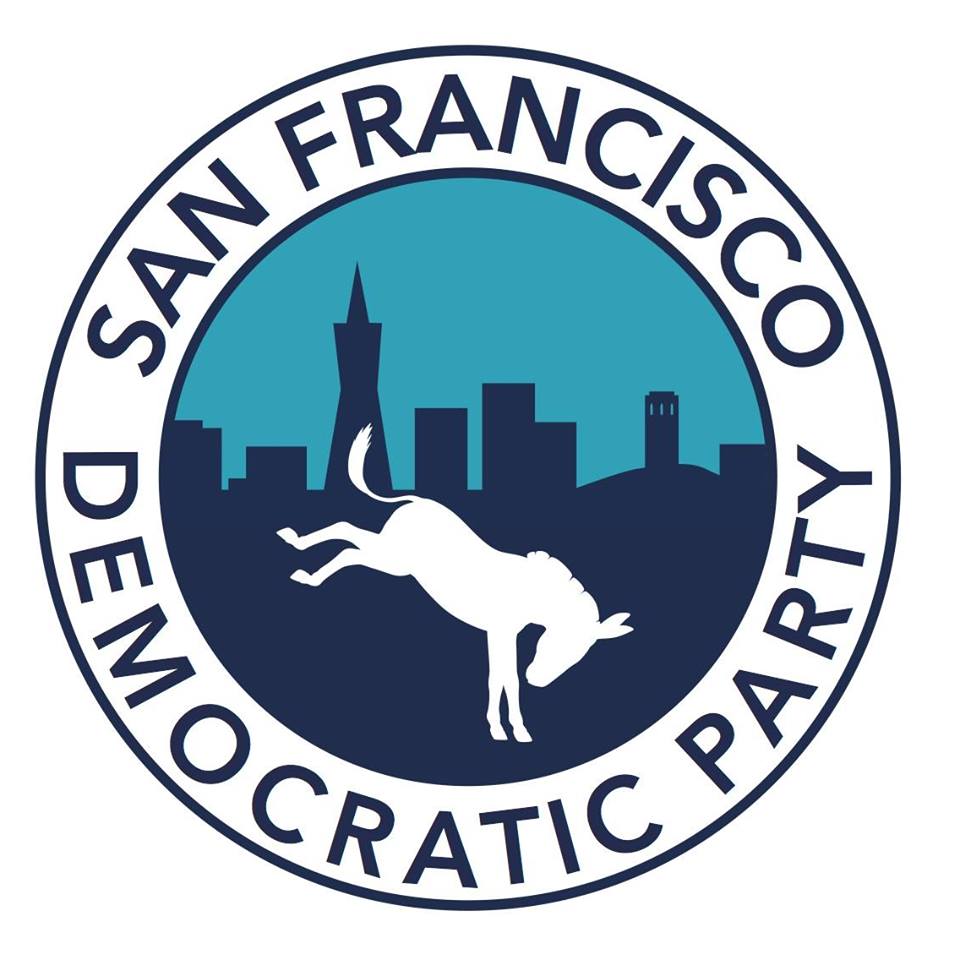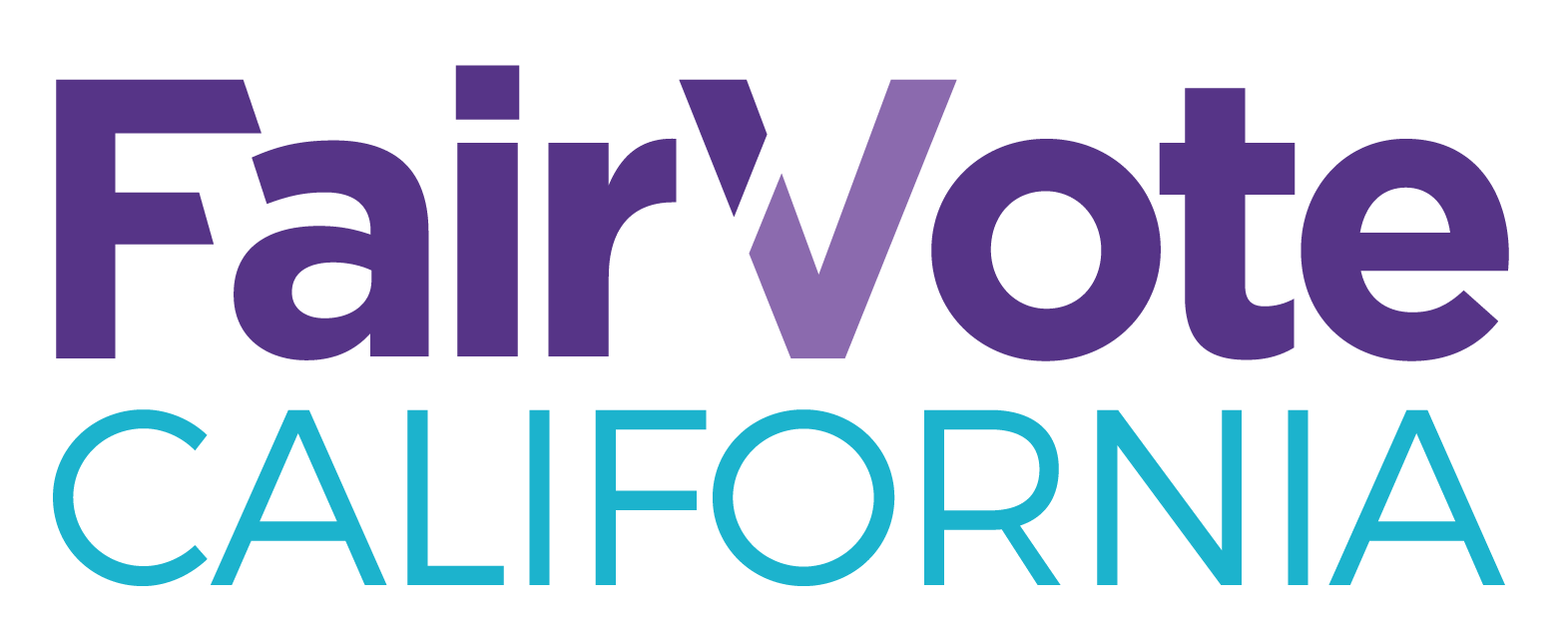
SAN FRANCISCO – At its regular monthly meeting in June, the Democratic Party of San Francisco voted overwhelmingly (19 in favor, 4 opposed, 4 abstain) to pass a resolution that reaffirmed the local Party’s support for ranked choice voting (RCV). In its resolution, the Democratic Party praised some of the key features of RCV including:
- Preventing costly and low turnout separate runoff elections (such as the previous December runoff)
- More positive and substantive campaigning and less mudslinging in a number of races
- Candidates recognizing the need to appeal to support from a broader electorate
- Encouraging more diversity in candidates and voters
- A 38 percent increase in the election of candidates of color in all four Bay Area cities that use RCV (San Francisco, Oakland, Berkeley and San Leandro)
- Significant increases in voter turnout
The Democratic Party resolution called RCV a “fair election system that has been a success for voters in representation in San Francisco.”
“The Democratic Party in San Francisco recognizes that ranked choice voting has added something valuable to the local political landscape,” said Pedro Hernandez, deputy director of FairVote California. “RCV has increased the diversity of elected officials, and done away with costly, low-turnout runoff elections where campaigns frequently degenerated into mudslinging slugfests. That system was ditched by San Francisco voters back in 2002 in favor of a ranked ballot that liberates voters to pick the candidates they really like instead of the lesser-of-two-evils.”
See the Democratic Party resolution below.
Additionally, three members of San Francisco’s Elections Commission recently published an op-ed in the San Francisco Examiner, “SF elections are working — and getting even better.” In it, Commissioners Chris Jerdonek, Charlotte Hill and Viva Mogi cited new research from the recent mayoral election, based on analysis of the anonymous ballot image records of voters’ rankings that the Department of Elections makes publicly available. Among the findings:
- Despite initial erroneous reports in local media that voter turnout was low, the DoE estimates that turnout was about 53 percent of registered voters – the second highest vote total in San Francisco mayoral election history, and one of the highest rates of participation. Turnout across California, meanwhile, was much lower, about 36 percent.
- In the RCV race for mayor, 85 percent of voters ranked at least two candidates, and nearly seven-in-ten ranked their top three candidates. More than nine-in-ten voters (91.5 percent) chose a candidate who made it to the final, decisive round of the election.
- Only 748 RCV ballots (about 0.30 percent) of the more than 253,000 ballots cast had a disqualifying overvote. Voters were six times more likely to cast an overvote in the non-RCV election for governor.
- In the old November-December runoff system (when the first election occurred in November, followed by a second runoff election in December if no candidate won an initial majority), voter turnout usually plummeted in December, on average by 31 percent.
- The RCV system also has allowed voters to choose from a more diverse candidate pool. Of the 18 offices in San Francisco elected by RCV, 13 are held by office-holders of color, a significantly higher proportion than before RCV implementation. One study found that the other Bay Area cities using RCV — Oakland, Berkeley and San Leandro — have seen similar results.
The three Elections Commissioners also announced that, starting in 2019, San Francisco will have new voting equipment that will give an option to voters to rank up to ten candidates, and will have a simpler ballot design, with candidates’ names being listed one time on the ballot instead of the current design that lists candidates’ names three times.
“San Francisco has waited a long time – too long – for voters to have more than three rankings,” said Steven Hill, the Bay Area architect of the ranked choice voting system, who also authored the original charter amendment and ran the successful campaign (Proposition A) to implement RCV in the four Bay Area cities. “We included that requirement in the original charter amendment, but only if the technology could handle more than three rankings. It has taken 16 years, but finally San Franciscans will be able to enjoy the full power of ranking their ballots.”
**********************************
Resolution Affirming the San Francisco Democratic Party’s Support for Ranked Choice Voting
Sponsors: Gallotta, Campos, F. Hsieh, Alexander
Vote was 19 in favor, 4 opposed, 4 abstain
WHEREAS, in 2002, San Francisco voters adopted Ranked Choice Voting (RCV) at the ballot, a system that allows voters to rank their 1st, 2nd, and 3rd candidate choices and initiates an instant run-off election if no single candidate reaches over 50% of the vote, thereby eliminating the need for voters to return to the polls for a second election; and
WHEREAS, in addition to preventing costly and low-turnout run-off elections, Ranked Choice Voting has led to more positive and substantive campaigning and less mudslinging in a number of races, with candidates recognizing the need to appeal to the broader electorate for support; and
WHEREAS compared to winner-take-all systems, Ranked Choice Voting encourages more diversity in candidates and voters, and has resulted in a 38% increase in election victories by candidates of color in counties that have adopted it while more than doubling voter turnout in some counties; and therefore
BE IT RESOLVED that Ranked Choice Voting is a fair election system that has been a success for voters and representation in San Francisco, as demonstrated by the fact that 84.5% of voters chose to rank two or more candidates in the June 5, 2018 election; and therefore be it
FURTHER RESOLVED that the San Francisco Democratic Party affirms its support of San Francisco’s Ranked Choice Voting system.
# # #

Showing 1 reaction
Sign in with
Facebook Twitter